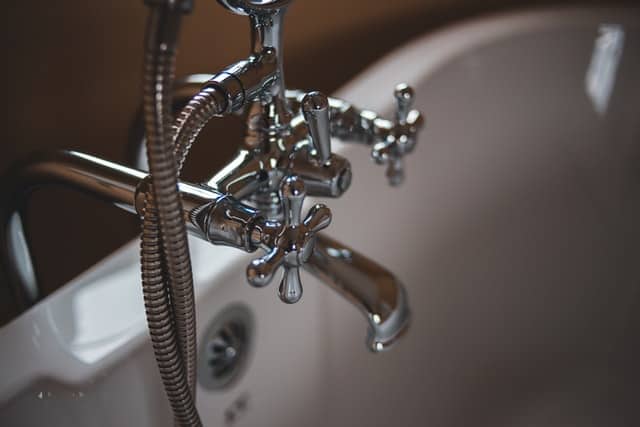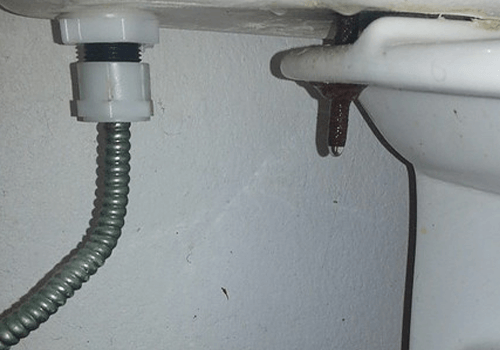Everyone has their unique opinion with regards to Prevent Freezing and Bursting Pipes.

All house owners who stay in warm climates need to do their finest to winterize their pipes. It is something you have to do throughout autumn prior to deep winter months truly starts. Failing to do so can lead to calamity like frozen, fractured, or burst pipelines. Here are some convenient winterizing hacks to keep your plumbing system protected even if the weather condition outside is shocking.
Switch on the Faucets
When the temperature decreases and also it seems as if the freezing temperature level will certainly last, it will certainly assist to turn on your water both inside and outdoors. This will keep the water streaming via your plumbing systems. You'll finish up throwing away gallons of water this way.
Open Cupboard Doors Hiding Plumbing
When it's cold outside, it would certainly be practical to open up cupboard doors that are concealing your pipes. Doing this little method can maintain your pipes cozy and also restrict the potentially dangerous outcomes of freezing temperature levels.
Require Time to Cover Exposed Piping
One simple and nifty hack to warm up cold pipelines is to cover them with warm towels. You can cover them first with towels. After safeguarding them in position, you can pour boiling water on the towels. Do it slowly to allow the towels absorb the fluid. You can additionally utilize pre-soaked towels in hot water, just do not neglect to use safety gloves to safeguard your hands from the warmth.
Attempt a Hair Dryer or Warmth Gun
When your pipes are virtually freezing, your dependable hair dryer or warmth gun is a blessing. Bowling warm air straight into them might help if the warm towels do not help remove any settling ice in your pipelines. Do not utilize various other items that generate direct fires like a strike lantern. This can result in a larger disaster that you can not manage. You might end up damaging your pipes while trying to thaw the ice. And over time, you might also wind up burning your home. So beware!
When Pipelines are Frozen, shut Off Water
Turn off the primary water shutoff instantly if you see that your pipelines are completely frozen or almost nearing that stage. You will usually discover this in your basement or laundry room near the heater or the front wall closest to the street. Turn it off today to prevent additional damage.
With more water, even more ice will certainly stack up, which will at some point lead to rupture pipes. If you are uncertain regarding the state of your pipes this winter months, it is best to call a professional plumber for an inspection.
All home owners that live in temperate environments need to do their finest to winterize their pipelines. Failing to do so can mean disaster like frozen, cracked, or ruptured pipes. If the warm towels do not help displace any kind of clearing up ice in your pipes, bowling warm air straight right into them may help. Turn off the major water valve instantly if you notice that your pipes are completely icy or nearly nearing that stage. With even more water, more ice will certainly load up, which will eventually lead to rupture pipes.
PREVENT YOUR PIPES FROM FREEZING THIS WINTER
A Leading Cause of Property Damage
When the weather is taking a deep nose dive into the cold dreary days, the risk of your pipes freezing and potentially bursting skyrockets. Unfortunately, during these cold dreary months, burst pipes are the most common denominator for property damage. The pipes that are most at the risk are those that are in areas where it is most cold in your home. For instance, pipes located in interior places such as basements, attics, and your garage. Unfortunately, that doesn’t mean that the pipes running through your cabinets or exterior walls can’t freeze. Good news, however, is that you can do things to help prevent pipes from freezing.
How to Prevent Pipes From Freezing
Once the temperature starts to drop during the winter, you should be taking the proper measures needed to ensure that your pipes stay warm and that there is circulation of water through them. Some steps that experts may recommend could go against your better judgement when it comes to saving water and heat. However, it would go without saying that when expenses are compared, damaged pipes could put a bigger dent in your wallet than a water bill.
What Can I Do?
Keep your garage door closed. This is very important, especially if you have water supply lines running through your garage. Open your kitchen and bathroom cabinets to allow warm air to circulate through them. Allow air circulation throughout your home. Keeping the interior doors open will once again allow the warm air to circulate inside your home. Ensure your thermostat is running the same temperature throughout the night and day. If you plan to be away from home during the cold months, set your temperature no lower than 55° F. This should provide enough heat to keep the pipes warm and prevent any remaining water inside the pipes from freezing. For more of a long-term solution, add insulation to attics, basement, and other crawl spaces around your home. By allowing your faucet to drip, it will alleviate pressure in the system. This is important because the pressure that is created between the blockage and the faucet can potentially cause the pipes to burst. Allowing the faucet to drip will prevent the pressure from building up, therefore keeping the pipes from bursting. Seal any cracks, openings, and crawl spaces around your home to prevent cold air from coming inside. This keeps your pipes-not to mention your home-warmer and less susceptible to issues caused by freezing temperatures. For the pipes in your home that are easily accessible, applying electrical tape to them might prevent them from freezing over. This is a quick fix, as you can apply the tape directly to the pipe. There are two options for heating tapes. One turns on and off by itself when it senses heat is needed. The other type of heating tape needs to be applied when heat is needed and removed when not necessary. If you have exposed pipes in your home, you can check this website to take a look at a few options that would be available at a shop near you.

Do you appreciate more info about How to stop pipes from freezing during the winter? Try to leave a review further down. We would be glad to know your responses about this page. Hoping that you visit us again later on. If you appreciated our article if you please don't forget to share it. Kudos for your time. Don't forget to come visit our site back soon.
Call Today